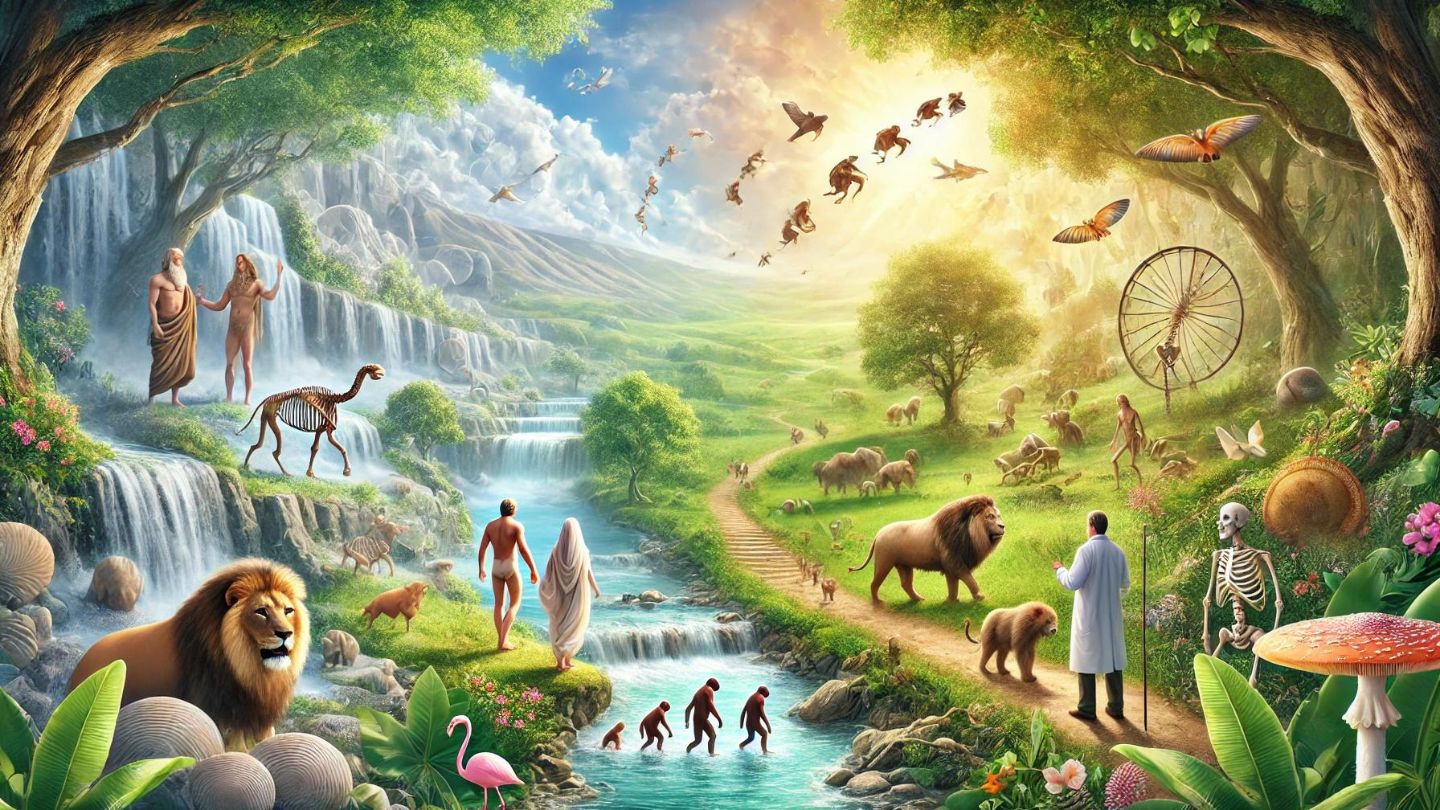The debate between evolution and creationism has long been a polarizing topic, especially within Christian communities. On one side, the theory of evolution, widely accepted in the scientific community, explains the diversity of life through natural selection and genetic mutations over millions of years. On the other, creationism holds that life on Earth, including humans, was created by God in a more immediate and intentional manner, as described in religious texts like the Bible. But is it possible for Christians to reconcile these seemingly contradictory viewpoints?
Understanding Evolution
Evolution, first proposed by Charles Darwin in the 19th century, suggests that all species of life have descended over time from common ancestors. This process involves natural selection, where traits that enhance survival and reproduction become more common in successive generations. Over long periods, these small changes accumulate, leading to the diversity of life forms we see today.
The Tenets of Creationism
Creationism, particularly Young Earth Creationism, interprets the Biblical account of Genesis literally, positing that the Earth and all its life forms were created by God over six days, approximately 6,000 to 10,000 years ago. Other forms of creationism, like Old Earth Creationism, accept a longer timeframe but still reject the mechanism of evolution as a means of creation.
The Compatibility Debate
The crux of the debate lies in whether these two perspectives can coexist. Can Christians accept the scientific explanations of evolution while maintaining their faith in the Biblical creation story?
Theistic Evolution: Some Christians adopt theistic evolution, which harmonizes the belief in God’s role in creation with the scientific principles of evolution. They view the Bible’s creation account as metaphorical or allegorical rather than literal, suggesting that God used evolution as a tool to develop life on Earth. This perspective allows for a divine purpose behind the evolutionary process.
Intelligent Design: Another middle ground is the theory of Intelligent Design, which posits that certain features of the universe and living things are best explained by an intelligent cause, not an undirected process like natural selection. Proponents argue that while evolution explains many biological changes, some complexities are evidence of a purposeful creator.
Scriptural Interpretation: The way Christians interpret scripture plays a significant role in this debate. Many theologians and scholars argue that the Bible’s creation stories were not meant to provide a scientific account but rather to convey theological truths about God’s relationship with creation. This view allows Christians to embrace scientific discoveries without feeling that they contradict their faith.
Challenges and Controversies
Despite these reconciliatory approaches, challenges remain. Fundamentalist groups often reject any compatibility, seeing evolution as inherently atheistic and incompatible with Biblical teachings. On the other hand, some secular scientists dismiss theistic evolution as an unnecessary compromise that undermines scientific rigor.
Moving Forward
For Christians grappling with this issue, it is essential to explore both scientific evidence and theological insights. Engaging with scientific literature, discussing with knowledgeable clergy, and studying various interpretations of scripture can provide a more comprehensive understanding. Education and open dialogue are key to finding a personal stance that honors both faith and reason.
Final Thoughts
The debate between evolution and creationism is complex and multifaceted. While some see them as mutually exclusive, many Christians find ways to integrate scientific understanding with their faith. Whether through theistic evolution, intelligent design, or a nuanced interpretation of scripture, it is possible for Christians to believe in both the marvels of scientific discovery and the divine mystery of creation. The journey to reconcile these views requires thoughtful consideration, open-mindedness, and a willingness to embrace the depths of both science and faith.
Author

Alona Smith is a devoted follower of Jesus Christ who believes that life’s true purpose is found in knowing Him and making Him known. She is passionate about sharing God’s Word with clarity and compassion, helping others see the beauty of the gospel of grace revealed through the Apostle Paul.
Grounded in Scripture and led by the Spirit, Alona seeks to live out her faith in practical ways—showing kindness, extending forgiveness, and walking in love. Whether serving in her local church, encouraging a friend in need, or simply living as a light in her community, she strives to reflect Christ in both word and deed.

